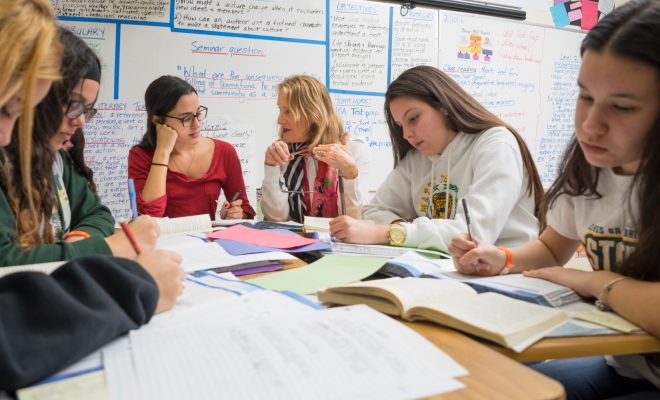Number Sense Skills are the Bedrock of Mathematics

By Chad Malcolm
Counting and Cardinality is only a standard in Kindergarten for the CCSS. However, this does not mean it cannot be strengthen every year moving forward. The above graphic helps to show the progression young students need to move through in-order to grow in counting and cardinality. Counting various quantities is the first activity in which children engage beginning at a very young age.
The main purpose of counting is so fundamental to our perception of quantity that it is seldom enunciated explicitly. The purpose of counting is to assign a numeric value to a group of objects. By getting students counting first it is providing them the basis to understand numerals and quantities in later process. Understanding the relationship between numbers and quantities; connect counting to cardinality. When counting objects, say the number names in the standard order, pairing each object with one and only one number name and each number name with one and only one object. Number sense essentially refers to a student’s “fluidity and flexibility with numbers,” (Gersten & Chard, 2001).
Students need to have a sense of what numbers mean, understand their relationship to one another, able to perform mental math, understand symbolic representations, and can use those numbers in real world situations. Now in today’s educational system, with more states requiring early childhood (prekindergarten) settings, a lot of students are coming to formal education with these skills developing. Most prekindergarten programs have students counting, learning numerals, working on cardinality items, and comparing numbers in a set for greatest or least.
So, with all the information provided above, now what? How do teachers, teacher candidates, and parents help children strengthen counting and cardinality. Here is where the CCSS standards can help everyone. Below are the CCSS standards for Counting and Cardinality:
| Know number names and count sequence. | CCSS.Math.Content.K.CC.A.1 Count to 100 by ones and by tens. |
| CCSS.Math.Content.K.CC.A.2 Count forward beginning from a given number within the known sequence (instead of having to begin at 1). |
|
| CCSS.Math.Content.K.CC.A.3 Write numbers from 0 to 20. Represent a number of objects with a written numeral 0-20 (with 0 representing a count of no objects). |
|
| Count to tell the number of objects. | CCSS.Math.Content.K.CC.B.4 Understand the relationship between numbers and quantities; connect counting to cardinality.CCSS.Math.Content.K.CC.B.4.a When counting objects, say the number names in the standard order, pairing each object with one and only one number name and each number name with one and only one object.CCSS.Math.Content.K.CC.B.4.b Understand that the last number name said tells the number of objects counted. The number of objects is the same regardless of their arrangement or the order in which they were counted.CCSS.Math.Content.K.CC.B.4.c Understand that each successive number name refers to a quantity that is one larger. |
| CCSS.Math.Content.K.CC.B.5 Count to answer “how many?” questions about as many as 20 things arranged in a line, a rectangular array, or a circle, or as many as 10 things in a scattered configuration; given a number from 1-20, count out that many objects. |
|
| Compare numbers. | CCSS.Math.Content.K.CC.C.6 Identify whether the number of objects in one group is greater than, less than, or equal to the number of objects in another group, e.g., by using matching and counting strategies. |
| CCSS.Math.Content.K.CC.C.7 Compare two numbers between 1 and 10 presented as written numerals. |
Most people will read these and say, “no problem children can do those things.” To that I respond, “yes, they can. If shown the proper way and reinforced when doing it correctly.” The main question is, how do we show the proper way and reinforce it, so that children can learn and function in math for years to come?
| Classroom Teachers | Teacher Candidates | Parents |
| As a classroom teacher, you should plan lessons that teach the concept of rote counting first. A good way to do this and reinforce it every day is to add in an exercise routine. I was a Head Start teacher for 7 years, and every morning my students and I would exercise during circle time. We would do jumping jacks, hops, kicks, punches, toe touches, and many more. Every time we did a new movement a student would chose a number for us to count to. As we did the exercises the students rote counted out loud.
Once the students are good with rote counting add in counting objects and teach one-to-one correspondence. This is the act of touching each object as you say the next number in the counting sequence.
Finally, assign a numeral to the quantity of objects in each grouping. |
Teacher candidates can do a lot of the same things the classroom teacher does as well. Develop your lesson plans around the standards to enhance the learning of each student.
To make yourself a level above other candidates, use literature to tie your lessons to language arts skills, and concrete materials such as manipulatives. Start every lesson with a short rote counting activity, and then move to one-to-one correspondence work, and quantity/numeral representation. The more times you tie the number in word and numeral form to a quantity the better the students will understand the connection.
Play a lot of games in small groups that are teacher-led. By the teacher playing the games with the students, they can monitor movement of pieces (one-to-one correspondence), and counting skills. |
Parents, one of the easiest things to do to build these skills in children is at meal time. In Head Start, every meal we ate was family style. I made two job helpers every day in my classroom as table setters. When it was time to set the table for dinner I simply told my table setters how many students were present that day. It was up to them to count out all the materials (placemats, plates, napkins, utensils, cups) and set them properly on the table for the meal.
Once we were all seated the children would serve themselves. I would simply state, for example, “everyone gets 4 chicken nuggets to start.” By allowing them to count out the food themselves reinforced the counting, one-to-one correspondence, and quantity/numeral representation.
One day, an older boy took five chicken nuggets. A young girl sitting beside him quickly stated, “you took 5, you need to put one back!” Your child will be able to do all these same things while eating dinner and helping you! |
Counting, Cardinality, and Number Sense are the foundation that all other systems in mathematics build upon. It is such an important building block for students that CCSS devoted 7 out of 15 Kindergarten standards to the concept. If students try to move to other standards without these concepts secured mathematics will be a struggle.





